
To learn a language is to have another window from which to look at the world. – – Chinese Proverb
Anyone who has ever traveled anywhere a different language is used is sure to have realized, ideally with humbling perspective, the profound influence language has on every day life. Of our travels and experiences with foreign languages, China sits at the top of the list for “perspective inducing experiences”. Since coming here in August, we’ve had language experiences that have made us laugh out loud, grit our teeth in frustration, or roll our eyes in exasperation at our inability to understand, or to be understood.

Nearly a million foreigners live in China and most are located in areas and cities that cater to them. Then there are the tens of millions of foreign tourists that travel to China each year. Hospitably, in my opinion, China has posted English signs when needed to help out us “laowai“.
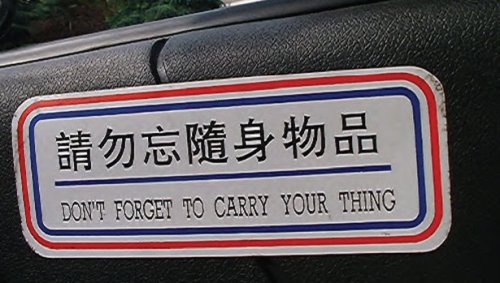
Sometimes, however, these well meaning translations can lead to probably something that wasn’t intended. Chinglish is a local term used by English speakers to categorize the type of translation, or English language use, that though literally correct, misses the intended meaning.

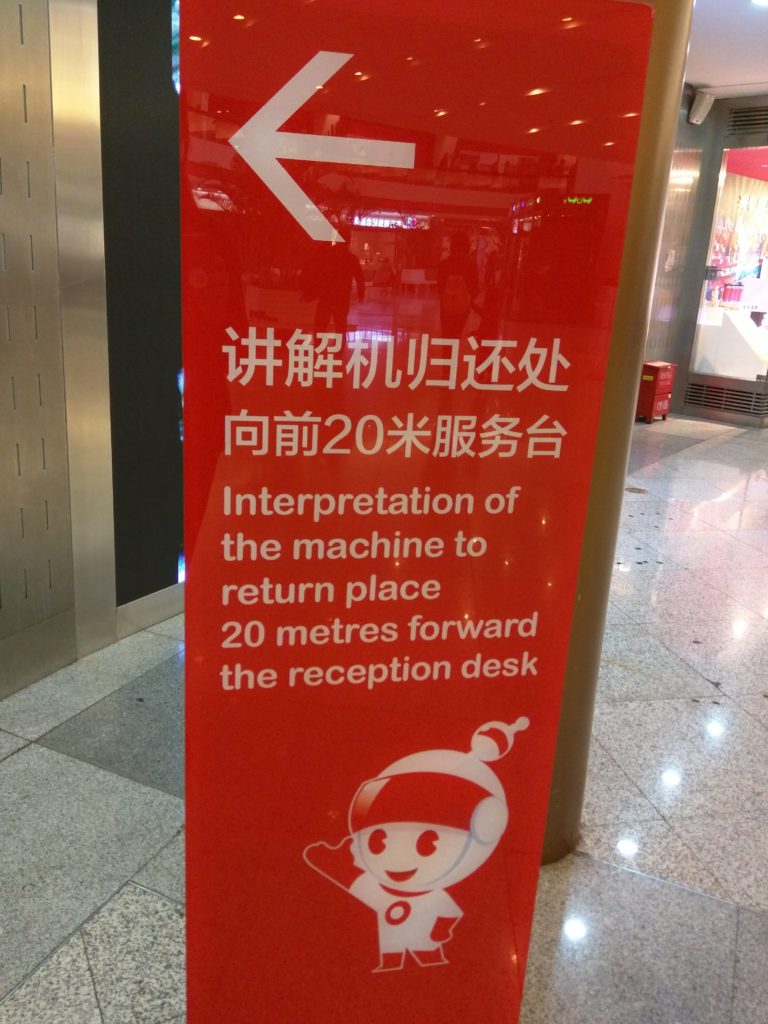

I heard a story once of someone taking their Chinese parents to Australia for vacation. The elderly parents were shocked and confused to see that signs in Australia weren’t in Chinese. They didn’t understand why, when they had seen English signs in their own country, that other countries didn’t do the same.
Often I wonder if the signs have some beautiful poetic meaning in Chinese – – messages about harmony and civilization.
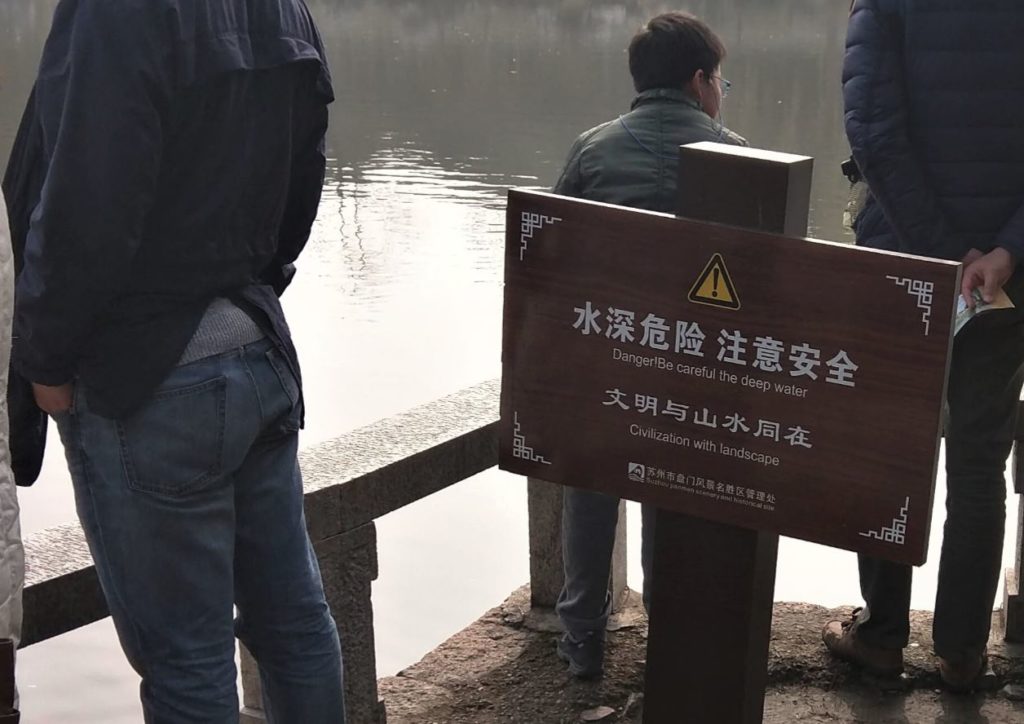
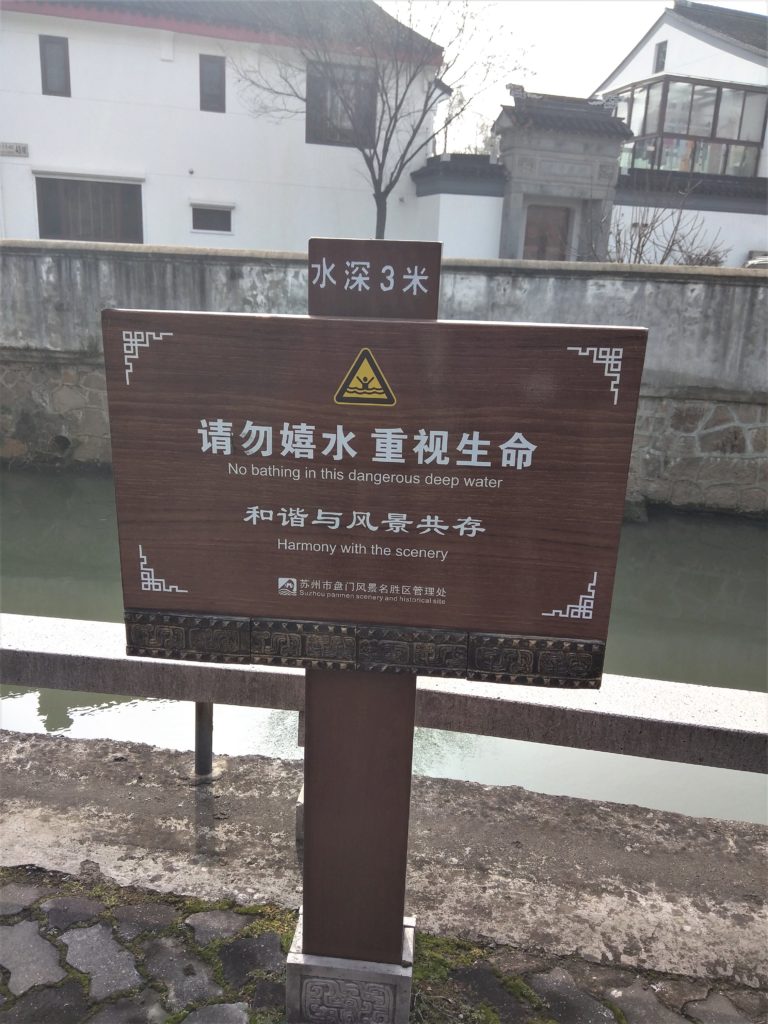
The translation mishaps don’t limit themselves to just signage. Sometimes the mishap is in the entire interpretation of mood. I was in a coffee shop that was designed to mimic the farmland style cafes of America with a little French bakery “je ne sai quoi” thrown in. It was pleasant. However, just as I was admiring the chalkboard scribbling about mature pumpkins, I was surprised to hear AC/DC’s Back in Black belting out over the restaurant’s speaker system, nicely rounding out the cafe’s “western” touches.

Chinese fashion seems preoccupied with English words and phrases. Everyone is wearing clothing that has English on it somewhere. You may be standing in the subway, admiring the black overcoat worn by the passenger next to you, when you see that there is tiny block English text running along the collar and then you look again and realize that it makes zero sense. It may be something like “running into the dream-time for color army”. Sometimes, this questionable text is emblazoned proudly on the front or back of a t shirt.


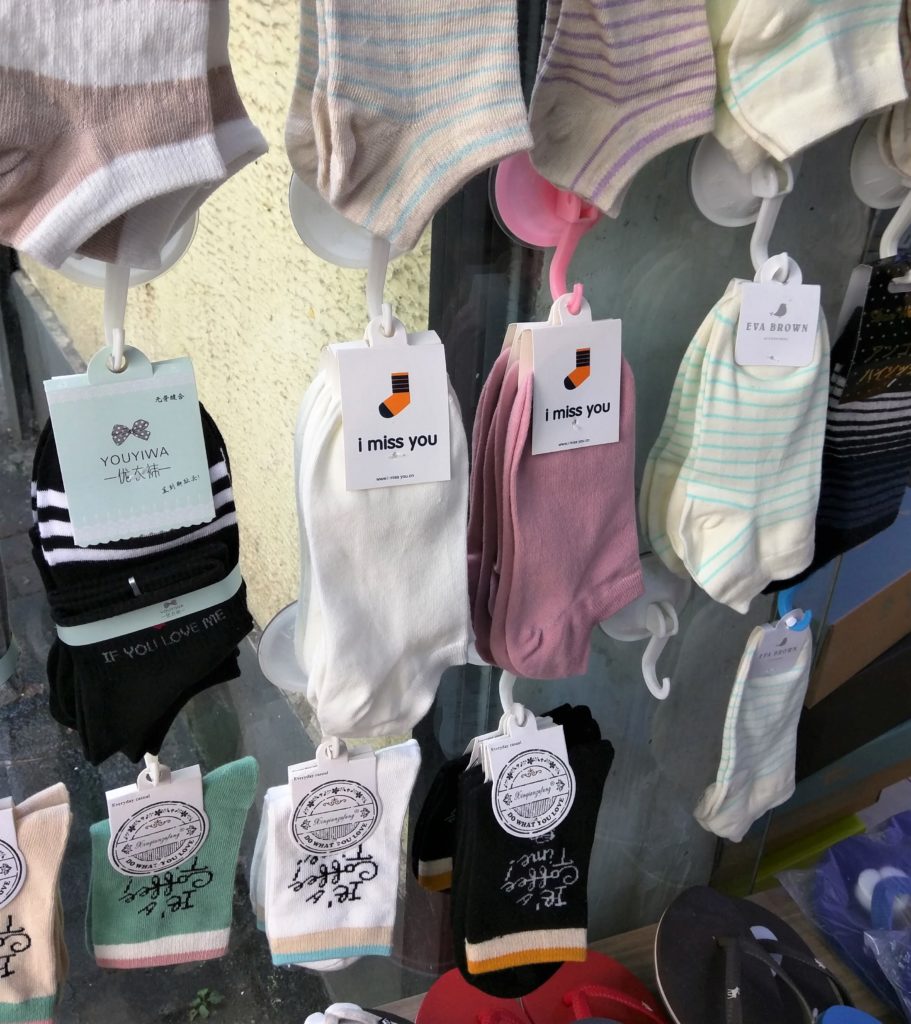
To delve into the truly absurd, just try shopping online. Machine translation is notoriously bad, but translating Chinese into English must be the worst of all. I was looking for pillow cases shortly after we arrived and was slightly offended, and largely confused, as to whether this was what I needed.

There are lot of online deliveries in China. You usually get texts notifying you when your package has arrived, or telling you things you can’t comprehend.
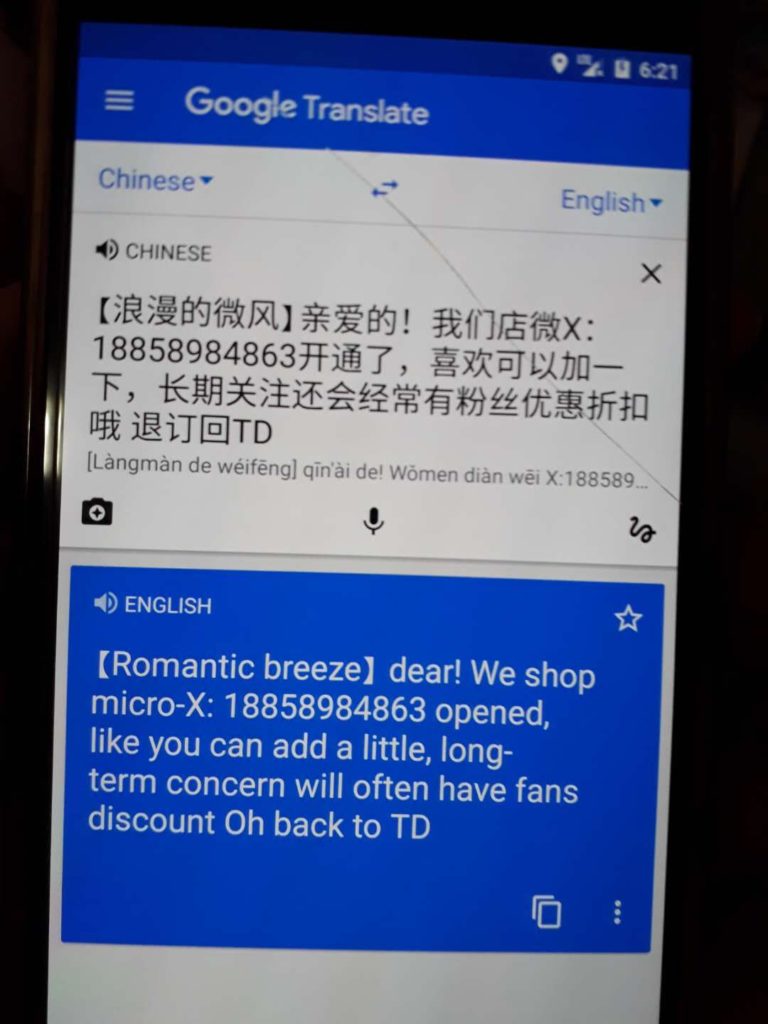
Last, but not least, is the delicious world of menus. See for yourself.
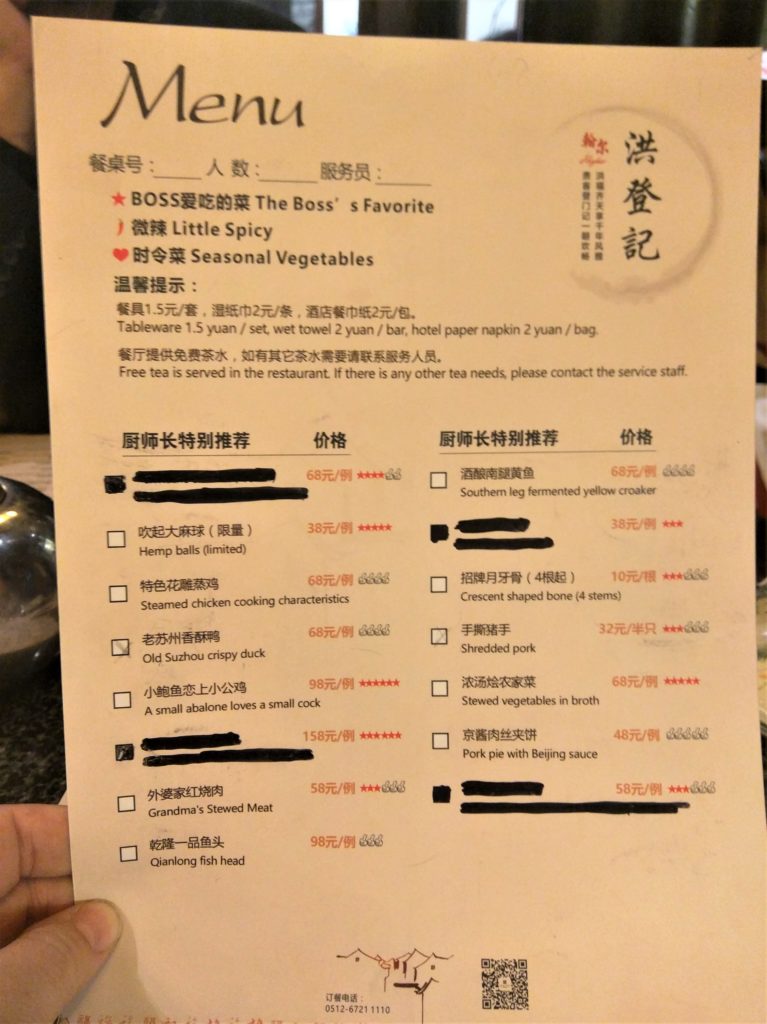
Certainly I am just as guilty of absurdity in my attempt to learn the language. Chinese is a tonal language and as such one word can have many different meanings if only pronounced with a slight variation in tone. I can’t count the times I have tried to practice my Chinese and been met with blank stares or confusion. When I thought I was saying, “Hi, can you tell me where the train station is?” I may have said instead, “Hi, does the does the fat panda punch a police station?”
The adventure continues for the Chinese and the foreigners alike! For more on this topic, just Google Chinglish and see for yourself.


On a recent trip, Marco sweetly found a flower that had fallen on the path for me to wear and later was chastised by the local signage.